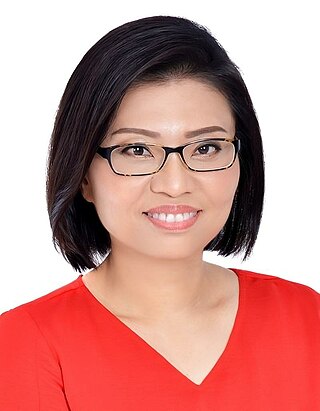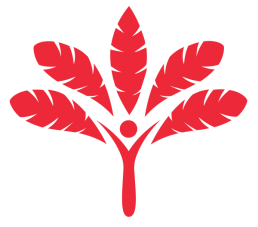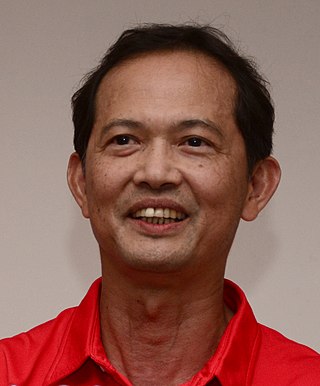Related Research Articles

Goh Chok Tong is a Singaporean former politician who served as the second prime minister of Singapore from 1990 to 2004 and as a senior minister of Singapore from 2004 to 2011. He served as the secretary-general of the People's Action Party (PAP) from 1992 to 2004 and was the member of Parliament (MP) for Marine Parade SMC from 1976 to 1988, and Marine Parade GRC from 1988 to 2020.

The Workers' Party is a major social democratic political party in Singapore and one of the three contemporary political parties represented in Parliament, alongside the governing People's Action Party (PAP) and the opposition Progress Singapore Party (PSP). The WP sits on the centre-left of the political spectrum and is currently the largest and oldest opposition party in Parliament, having contested every parliamentary election since 1959 against the dominant PAP. Since the 1991 general election, the WP has been the only political party, other than the PAP, with elected Members of Parliament (MPs).

The National Solidarity Party is an opposition political party in Singapore.

A Non-constituency Member of Parliament (NCMP) is a member of an opposition political party in Singapore who, according to the Constitution and Parliamentary Elections Act, is declared to have been elected a Member of Parliament (MP) without constituency representation, despite having lost in a general election, by virtue of having been one of the best-performing losers. When less than 12 opposition MPs have been elected, the number of NCMPs is the difference to total 12. NCMPs enjoy all of the privileges of ordinary members of Parliament, apart from the salary, which is substantially lower.

New Zealand is party to several free trade agreements (FTAs) worldwide.

India-Singapore relations, also known as the Indo-Singaporeanrelations, are the bilateral relations between India and Singapore. Relations between the two countries have traditionally been strong and friendly, with the two nations enjoying extensive cultural and commercial relations. India and Singapore have signed the Comprehensive Economic Cooperation Agreement (CECA) and strategic-relationship agreement in order to increase trade, investments and economic cooperation, and expanded bilateral cooperation on maritime security, training forces, joint naval exercises, developing military technology and fighting terrorism.

Vivian Balakrishnan is a Singaporean politician, diplomat and former ophthalmologist who has been serving as Minister for Foreign Affairs since 2015. A member of the governing People's Action Party (PAP), he has been the Member of Parliament (MP) for the Cashew division of Holland–Bukit Timah GRC since 2006, and previously the Ulu Pandan division of Holland–Bukit Panjang GRC between 2001 and 2006.

Hazel Poa Koon Koon is a Singaporean politician and businesswoman. A member of the opposition Progress Singapore Party (PSP), she has been a Non-Constituency Member of the 14th Parliament of Singapore since 2020. She has served as the Secretary-General of PSP since 2024.

Piyush Gupta is an Indian-born Singaporean banker and the chief executive officer (CEO) of DBS Group, the largest bank in Southeast Asia by total assets. He is vice-chairman of the Institute of International Finance, and a board member of Enterprise Singapore.

General elections were held in Singapore on Friday, 10 July 2020 to elect 93 members to the Parliament of Singapore across 31 constituencies. Parliament was dissolved and the general election called by President Halimah Yacob on 23 June, on the advice of Prime Minister Lee Hsien Loong. It elected members of parliament to the 14th Parliament of Singapore since Singapore's independence in 1965, using the first-past-the-post electoral system.
Lim Tean is a Singaporean lawyer and politician. He is the founder of the political party Peoples Voice and was appointed as Peoples Voice secretary-general. He previously was appointed as secretary-general of the National Solidarity Party from 30 August 2015 to 18 May 2017.

The Progress Singapore Party is an opposition political party in Singapore and is currently one of the three contemporary political parties represented in Parliament, alongside the governing People's Action Party (PAP) and opposition Workers' Party (WP).
The following lists events that happened during 2021 in the Republic of Singapore.

The 14th Parliament of Singapore is the current Parliament of Singapore. It opened on 24 August 2020. The membership was set by the 2020 Singapore General Election on 10 July 2020.

Leong Mun Wai is a Singaporean politician and former investment banker. A member of the opposition Progress Singapore Party (PSP), he has been a Non-Constituency Member of Parliament of the 14th Parliament of Singapore since 2020 and served as Secretary-General of the PSP from 2023 to 2024.

General elections are due to be held in Singapore no later than 23 November 2025 to determine the composition of the fifteenth Singaporean Parliament. The elections will be the nineteenth in Singapore since 1948 and the fourteenth since independence.
South Korea has concluded free trade agreements (FTAs) and other agreements with a trade component with countries around the world and is negotiating with others.
India is party to free trade agreements (FTAs) and other trade agreements with many countries and trade blocs, and is negotiating with many others. As of 2022, India has preferential access, economic cooperation and FTA with more than 50 individual countries.
The Indian Space Research Organisation (ISRO) has frequently collaborated with various organisations and universities in Singapore, with activities related to space. With 20 Singaporean satellites launched by ISRO, Singapore is the third largest customer of ISRO'S foreign satellite launching missions. During the India-Singapore technology summit of 2022, both countries signed a memorandum of understanding on Cooperation in the fields of Science, Technology, and Innovation.
References
- ↑ "Overview of India (CECA)". International Enterprise Singapore. 2005. Archived from the original on 24 June 2015. Retrieved 25 July 2015.
- 1 2 3 4 5 "IPCS Special Report - India-Singapore Relations" (PDF). Institute of Peace and Conflict Studies. Archived from the original (PDF) on June 11, 2007. Retrieved 2008-06-18.
- 1 2 3 "India, Singapore ink pact". Asia Times. 2005-07-02. Archived from the original on 2012-09-23. Retrieved 2008-06-18.
- ↑ "India-Singapore Economic and Commercial Relations". Federation of Indian Chambers of Commerce and Industry. Archived from the original on 11 June 2008. Retrieved 18 June 2008.
- ↑ "Conclusion of the second review of the India-Singapore Comprehensive Economic Cooperation Agreement". www.mti.gov.sg. Archived from the original on 2019-02-12. Retrieved 2019-02-19.
- ↑ "Can firms hire Indian professionals in Singapore without valid work passes, or without adhering to fair employment guidelines?". www.gov.sg. Archived from the original on 2019-02-12. Retrieved 2019-02-19.
- ↑ "Singapore blocks visas for Indian IT professionals - Times of India ►". The Times of India. Archived from the original on 2018-11-28. Retrieved 2019-02-19.
- ↑ "Committed to CECA review with India, says Singapore". The Economic Times. 6 April 2017. Archived from the original on 12 February 2019. Retrieved 19 February 2019.
- ↑ "Third review of landmark India-Singapore economic deal to focus on trade facilitation, e-commerce and customs". The Straits Times. 1 September 2018. Archived from the original on 23 February 2019. Retrieved 19 February 2019.
- ↑ "FTAs Singapore Has Signed". Enterprise Singapore. 15 September 2019.
- ↑ "What the heck is CECA & should you be angry at it, explained". Mothership. 10 November 2019. Archived from the original on 2 June 2020. Retrieved 20 September 2020.
- ↑ "What the heck is CECA & should you be angry at it, explained". Mothership. 10 November 2019. Archived from the original on 2 June 2020. Retrieved 20 September 2020.
- ↑ "Are Singaporean workers really losing jobs to Indian expats due to CECA free-trade deal?". South China Morning Post . 12 September 2020. Archived from the original on 17 September 2020. Retrieved 20 September 2020.
- ↑ "Netizens remain sceptical over Government's clarification that CECA doesn't allow Indian nationals to become citizens of Singapore". The Online Citizen. 28 August 2020. Archived from the original on 20 September 2020. Retrieved 20 September 2020.
- ↑ "MTI continues to defend CECA: Less than 5% of EP holders are intra-corporate transferees". The Online Citizen. 12 September 2020. Archived from the original on 17 September 2020. Retrieved 20 September 2020.
- ↑ "Govt takes 'very serious view' of falsehoods on CECA that try to divide Singapore: Chan Chun Sing". TODAY. 9 November 2019. Archived from the original on 10 November 2019. Retrieved 20 September 2020.
- ↑ "As Chan Chun Sing defends CECA, we need to ask if CECA works for the majority of Singaporeans or just the few at the top?". The Online Citizen. 1 September 2020. Archived from the original on 20 September 2020. Retrieved 20 September 2020.
- ↑ "Tan Cheng Bock's promise to call for a review of CECA agreement trends online". The Independent. Archived from the original on 1 November 2019. Retrieved 1 November 2019.
- ↑ Koh, Fabian (14 July 2020). "GE2020: PSP chooses assistant secretary-general Leong Mun Wai and vice-chairman Hazel Poa as NCMPs". The Straits Times. Archived from the original on 14 July 2020. Retrieved 14 July 2020.
- ↑ "GE2020: PSP's Hazel Poa and Leong Mun Wai will take up NCMP seats". CNA. 14 July 2020. Retrieved 14 July 2020.[ permanent dead link ]
- ↑ "Press Statement on Election of Non-Constituency Members of Parliament" (PDF). Archived (PDF) from the original on 2020-07-16. Retrieved 2020-09-20.
- ↑ "Piyush Gupta was still a foreigner when he received CEO appointment letter from DBS". The Online Citizen. 5 September 2020. Archived from the original on 7 September 2020. Retrieved 20 September 2020.
- ↑ "Ministers take NCMP Leong Mun Wai to task over remarks about DBS chief". The Straits Times. 5 September 2020. Archived from the original on 20 September 2020. Retrieved 20 September 2020.